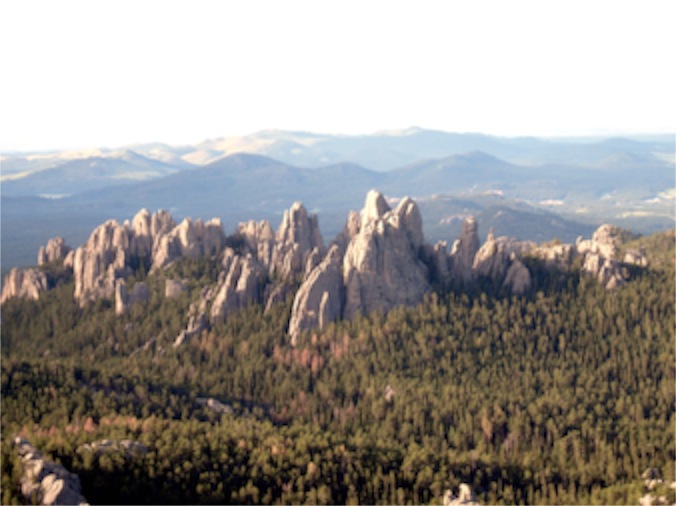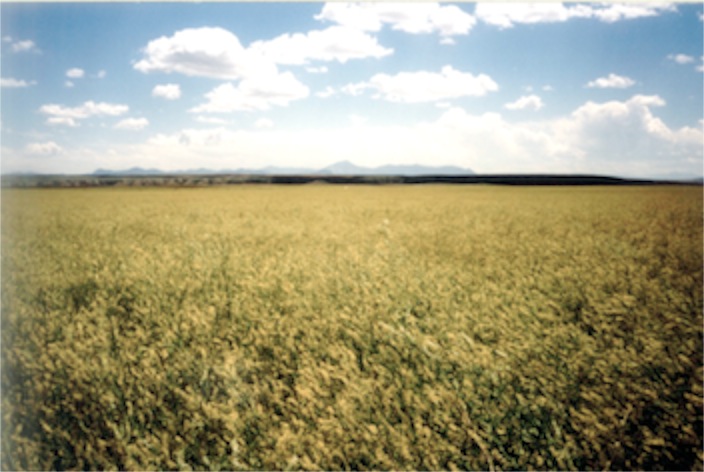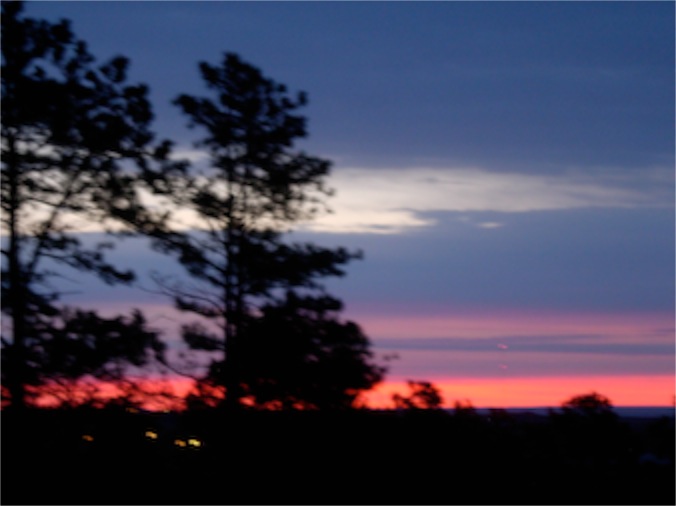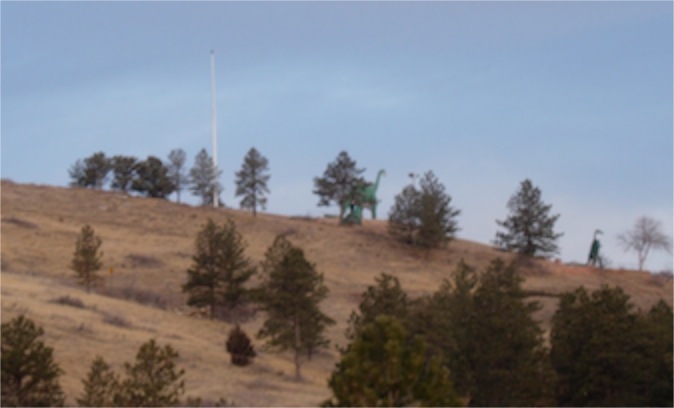What Makes a South Dakotan?
27/02/12 04:06
The South Dakota Humanities Council will celebrate its 40 year anniversary this year and one of their projects has been to ask “What Makes a South Dakotan?” They are inviting South Dakotans to write and submit essays of 100 to 600 words that they intend to incorporate into a book. It is an intriguing idea.
 I need to start by saying that I probably will not submit an essay. I’m probably too long-winded for the project. My daily blogs average over 1,000 words each. But that isn’t the real reason. You see, I don’t know whether or not I am a South Dakotan. I have lived in this state over 16 years now. I have many friends and I have driven a fair share of the back roads. I love the land and I really enjoy each opportunity to get out into the open space. And I love the people. In this state are many really good people who go out of their ways to help their neighbors, who invest deeply in community, who share values of hard work, family and care for the land and the critters.
I need to start by saying that I probably will not submit an essay. I’m probably too long-winded for the project. My daily blogs average over 1,000 words each. But that isn’t the real reason. You see, I don’t know whether or not I am a South Dakotan. I have lived in this state over 16 years now. I have many friends and I have driven a fair share of the back roads. I love the land and I really enjoy each opportunity to get out into the open space. And I love the people. In this state are many really good people who go out of their ways to help their neighbors, who invest deeply in community, who share values of hard work, family and care for the land and the critters.
But I was not born in this state. I did not grow up here. I do not know where my life will lead me. I might retire in this place and I might retire in another place. Yesterday our congregation said farewell to a couple whose history has been intertwined with South Dakota for a long time. Ray Schatz was born in North Dakota, but attended college in South Dakota and began his career as a minister here. He served a congregation in Minnesota while furthering his education and another in Oregon and then came back to South Dakota where he served one of our congregations for over 20 years, was an Associate Conference Minister, and served several interim ministries. His wife, born and raised in South Dakota has many family ties in our state. Now, in their seventies, they are pulling up stakes and moving to Tennessee, where there is a retirement community closely related to our church that attracts many ministers and has the right cobination of services for people at their stage of life. Something tells me that they will always be South Dakotans even though they will be living in another state.
 I don’t know about myself. I was born in Montana, attended Seminary in Illinois, and have served congregations in North Dakota, Idaho and South Dakota. I have lived in the house that we now own more years than I have lived in any other house. Which is to say that I have moved about a fair amount. For many years, I identified myself as a Montanan. At each point in our lives when we have been looking to discern God’s call, I have thought that we would find a way to move back to Montana. Each time, we somehow ended up somewhere else. As the years have gone by, though my roots and loyalties run deep, I realize that the state of my birth might not really be my home state.
I don’t know about myself. I was born in Montana, attended Seminary in Illinois, and have served congregations in North Dakota, Idaho and South Dakota. I have lived in the house that we now own more years than I have lived in any other house. Which is to say that I have moved about a fair amount. For many years, I identified myself as a Montanan. At each point in our lives when we have been looking to discern God’s call, I have thought that we would find a way to move back to Montana. Each time, we somehow ended up somewhere else. As the years have gone by, though my roots and loyalties run deep, I realize that the state of my birth might not really be my home state.
That means that I will never have the connections to a single place that some people have. There are folks in our congregation who celebrate five generations of participation in our church. Not only have I never lived in the same state continuously for 25 years, neither of our children live in South Dakota. It is unlikely that our grandchildren will ever live here.
 One of the realities of South Dakota – and one of the things that might be a defining quality of South Dakotans – is that people who grow up here maintain their connections even when they live somewhere else. From a sociological viewpoint one of the things that makes a South Dakotan is that we export our children. Children who grow up in South Dakota are likely to live elsewhere for much of their income-producing years. There simply are not enough jobs to support those who grow up here and South Dakota offers some of the lowest wages in the country. In almost any profession there are higher wages to be earned by simply crossing state lines. However, those young people who move away to earn their living remain connected and many of them return to South Dakota to retire. In many parts of the world a growing population means that the population is young. Here in Rapid City we have a population that is growing larger and growing older at the same time.
One of the realities of South Dakota – and one of the things that might be a defining quality of South Dakotans – is that people who grow up here maintain their connections even when they live somewhere else. From a sociological viewpoint one of the things that makes a South Dakotan is that we export our children. Children who grow up in South Dakota are likely to live elsewhere for much of their income-producing years. There simply are not enough jobs to support those who grow up here and South Dakota offers some of the lowest wages in the country. In almost any profession there are higher wages to be earned by simply crossing state lines. However, those young people who move away to earn their living remain connected and many of them return to South Dakota to retire. In many parts of the world a growing population means that the population is young. Here in Rapid City we have a population that is growing larger and growing older at the same time.
Of course there is a sociological reality that follows the exporting of children. Those people tend to give birth to and raise their children in other places. Fewer children who are born and raised here continue to keep our state a place that has a lot of land populated by a few people. To be honest, it is one of the things that those of us who live here love about our lives – lots of open space. We can spend time alone when we want to.
One thing that binds South Dakotans is a sense of shared history. 2012 is not only the 40th anniversary of the founding of the South Dakota Humanities Council, it is also the 40th anniversary of the devastating flash flood that ripped through Rapid City leaving hundreds of fatalities and millions of dollars of destruction in its wake. I am often part of conversations where the participants are divided into two camps – those who remember the flood and those who came after the flood. I belong to the second camp, but I did visit Rapid City in the aftermath of the flood and witnessed much of the destruction before things had been cleaned up. I have a few first-hand memories of the aftermath that allow me to participate in conversations with both groups of people.
 Still, I don’t think that I am really a South Dakotan in the same sense as the residents of the century farms or the reservation families that can trace their lineage to before the coming of European settlers. Maybe like many other people who end up living as wanderers in this world, I don’t have any single place that I can claim. Perhaps I am a Montanan-Illinoisan-North Dakotan-Idahoan-South Dakotan-perhaps some other-ian. That has been the story of our people. With our roots in Exodus and Exile, our people have always been wanderers. But we do know our home. “Lord, Thou hast been our dwelling place in all generations,” begins the 90th Psalm. It is the song of our people and it is my song as well.
Still, I don’t think that I am really a South Dakotan in the same sense as the residents of the century farms or the reservation families that can trace their lineage to before the coming of European settlers. Maybe like many other people who end up living as wanderers in this world, I don’t have any single place that I can claim. Perhaps I am a Montanan-Illinoisan-North Dakotan-Idahoan-South Dakotan-perhaps some other-ian. That has been the story of our people. With our roots in Exodus and Exile, our people have always been wanderers. But we do know our home. “Lord, Thou hast been our dwelling place in all generations,” begins the 90th Psalm. It is the song of our people and it is my song as well.
I probably will never write a “South Dakotan” essay. But I intend to buy and read the book. I’ve been around here enough to know that South Dakotans are fascinating and wonderful people. They make really good neighbors. It is part of the reason I’ve been living here for so long.

But I was not born in this state. I did not grow up here. I do not know where my life will lead me. I might retire in this place and I might retire in another place. Yesterday our congregation said farewell to a couple whose history has been intertwined with South Dakota for a long time. Ray Schatz was born in North Dakota, but attended college in South Dakota and began his career as a minister here. He served a congregation in Minnesota while furthering his education and another in Oregon and then came back to South Dakota where he served one of our congregations for over 20 years, was an Associate Conference Minister, and served several interim ministries. His wife, born and raised in South Dakota has many family ties in our state. Now, in their seventies, they are pulling up stakes and moving to Tennessee, where there is a retirement community closely related to our church that attracts many ministers and has the right cobination of services for people at their stage of life. Something tells me that they will always be South Dakotans even though they will be living in another state.

That means that I will never have the connections to a single place that some people have. There are folks in our congregation who celebrate five generations of participation in our church. Not only have I never lived in the same state continuously for 25 years, neither of our children live in South Dakota. It is unlikely that our grandchildren will ever live here.

Of course there is a sociological reality that follows the exporting of children. Those people tend to give birth to and raise their children in other places. Fewer children who are born and raised here continue to keep our state a place that has a lot of land populated by a few people. To be honest, it is one of the things that those of us who live here love about our lives – lots of open space. We can spend time alone when we want to.
One thing that binds South Dakotans is a sense of shared history. 2012 is not only the 40th anniversary of the founding of the South Dakota Humanities Council, it is also the 40th anniversary of the devastating flash flood that ripped through Rapid City leaving hundreds of fatalities and millions of dollars of destruction in its wake. I am often part of conversations where the participants are divided into two camps – those who remember the flood and those who came after the flood. I belong to the second camp, but I did visit Rapid City in the aftermath of the flood and witnessed much of the destruction before things had been cleaned up. I have a few first-hand memories of the aftermath that allow me to participate in conversations with both groups of people.

I probably will never write a “South Dakotan” essay. But I intend to buy and read the book. I’ve been around here enough to know that South Dakotans are fascinating and wonderful people. They make really good neighbors. It is part of the reason I’ve been living here for so long.